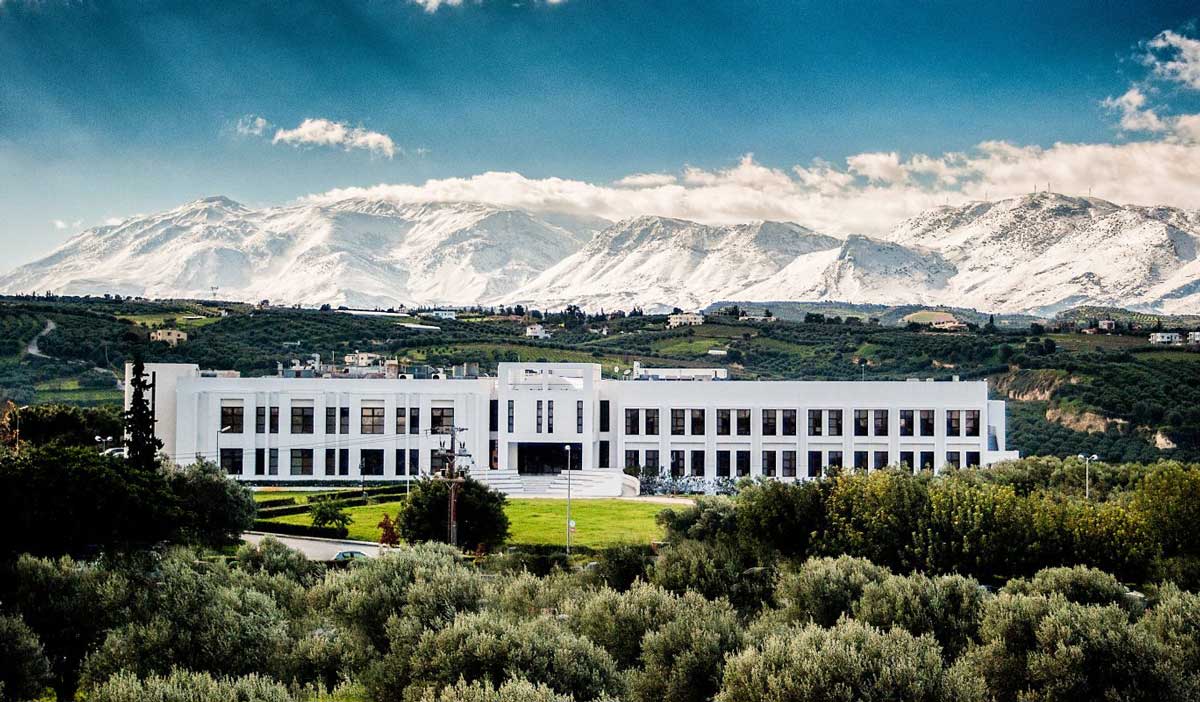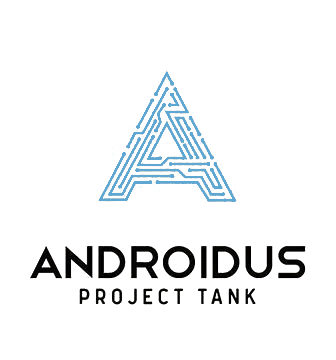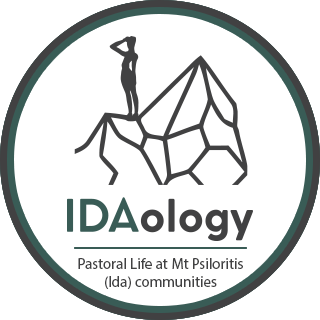
website: forth.gr

The Foundation for Research and Technology-Hellas (FORTH), established in 1983, is one of the largest research centers in Greece with well organized facilities, highly qualified personnel and a reputation as a top-level research foundation worldwide. The research and technological directions of FORTH focus on areas of major scientific, social, and economic interest. The Foundation, with headquarters in Heraklion, includes six Research Institutes in different parts of the country.
The Institute of Computer Science (ICS-FORTH) will participate in this consortium and it is located in Heraklion, Crete. The Institute of Computer Science has had a relatively long history and recognised tradition, since its establishment in 1983, in conducting basic and applied research, developing applications and products, providing services, and playing a leading role in Greece and internationally, in the fields of Information and Communication Technologies. Activities of ICS cover important research and development areas, encompassing new perspectives, emerging fields of research and technological challenges worldwide. In its continuing efforts to exploit its research activities and results, the Institute contributes significantly to the diffusion of modern Information and Communications Technologies in the public and private sectors. Thus, ICS acts as a catalyst for the development of the Information and Communication Technologies sector in Greece, and the creation of favourable conditions for the emergence of an Information Society acceptable by all citizens.
The group that will be involved with the implementation of this project is part of the Computational Bio-Medicine Laboratory (CBML, http://www.ics.forth.gr/cbml), whose mission is to develop novel ICT technologies in the wider context of personalized, predictive and preventive medicine. Several EC and national grants as well as a number of strategic clinical collaborations have ensured that the research output is driven from the actual clinical requirements and translated to the clinical setting. Research within CBML focuses on the development of innovative computational algorithms and methods, in the fields of medical informatics, bioinformatics, eHealth, bio-signal analysis and computational medicine.

website: www.androidus.gr
The Androidus Project Tank is the result of an effort that started from a network of friends and volunteers who organized the first TEDXAnogeia in 2015 to evolve into the Society for Cultural Management and Digital Culture on the axis of the social and creative economy.
In an ever-changing world, people’s stories and evidence of the past are the pieces we collect in an effort to record the cultural footprint as an augmented reality experience.
Androidus Project Tank with co-founders the candidate Ph.D. in Cultural Planning and Cultural Administrator Georgios Kalomiris and Analyst-Programmer of Information Systems Antonis Dayadas, since 2018 has been trying to combine the utilization of the cultural stock with modern technologies in an attempt to spread and diffuse the cultural heritage of the Cretan land.
With the aim of disseminating study and research results, we created the Epimenidis Forum in 2019 – The Return of the Mountains as the first event in the mountainous hinterland of Crete where projects from the fields of entrepreneurship, research, innovation, technology, entrepreneurship, and cultural management were presented with the prompt of creation in the Greek countryside. Epimenidis Forum
Our main project is the drafting of a cultural study for the National Catalog of Intangible Cultural Heritage in collaboration with the Municipality of Anogeia and its theme is the Shepherding of Psiloritis and the world of the Shepherd, which was the main source of the present program. The unwritten institutions and customary characteristics of the shepherds of Psiloritis
On Androidus. Project Tank as a local action group of Psiloritis is interested in collecting and utilizing the components that shape the character and culture of our place over time. Guided by research, participatory design, interdisciplinary study, and collaboration, we are interested as a Research and Cultural Action Agency in discovering the deep-rooted characteristics of our place as elements of our cultural heritage.
Adopting as the main axes of our corporate activity:
1) The design and development of digital cultural products
2) The organization of themed events and events
3) The preparation and planning of cultural management proposals
we choose local action thinking of global interaction as the only passport idea for the world of the future.

Workshop “Visual Anthropology. Image, Music, Text”
Department of Philosophy and Social Studies (F.K.S.)
Objectives
a) Cultural documentation based on images (cinema, photography, visual arts), music, and speech.
(b) The support and development of research methods in the above categories of evidence,
(c) The ability to produce visual and audio (music and speech) documents;
(d) The organization of seminars, symposia, conferences, lectures, and all kinds of similar meetings and events with Greek and foreign experts, as well as the realization of publications and editions, in the form of series, books, articles, and magazines,
(e) The collaboration with social agencies, public or private, through the development of programs within the framework of the Laboratory’s knowledge object,
(f) The development and elaboration, independently or in collaboration, of lifelong learning programs related to the subject matter of the Laboratory.
Subjects
Visual Anthropology, Content Analysis/Discourse Analysis of Oral and Written Testimonies, Ethnographic Research
Center for Gender Studies, Gender Laboratory
Department of Sociology
Objectives
The interdisciplinary Gender Studies Laboratory (Gender Laboratory) of the University of Crete aims to create and support a creative research environment and to ensure open and interdisciplinary collaboration and research on gender and equality. It was founded in 2004 (NSPA/EPEAK funding) and initially included three Academic Departments (Sociology, History and Archaeology, and Philosophical and Social Studies). In 2009 the Laboratory acquired independent legal status. Since then it has been operating in collaboration with the Department of Sociology and the active participation of the Departments of History and Archaeology. It is housed in the KEME-PK, Gallou University (Rethymnon) where it also has the headquarters of its archival material and its academic and research activities such as workshops, seminars, conferences, etc.
The Gender Lab conducts, supports and houses research and studies that focus on gender and equality. It has ensured collaborations with other similar Research Centers and Organizations and is always open to collaborations with scholars with the aim of studying, understanding and overcoming gender and social discrimination. The Workshop promotes initiatives that contribute to gender awareness within the academic community, social institutions and society in general. Working towards this end, the Laboratory organizes outreach and collaboration activities with partners and the general public, such as conferences, presentations, exhibitions, open lectures and discussions on and off campus.
The Laboratory has special equipment for teaching and lectures, as well as an extensive exhibition of edited material that is available to students, researchers and anyone interested in gender and equality issues.
Subjects
Social Gender Studies, Feminist Theory, Methodology and Research, Gender and Law, Gender and Bioethics, Gendered Crime Theories, Gender and Media, Gender and Migration, Gender in History and Prehistory (Crete, Aegean, Mediterranean) , Feminist Movement, State and Feminism.
Follow Us!
